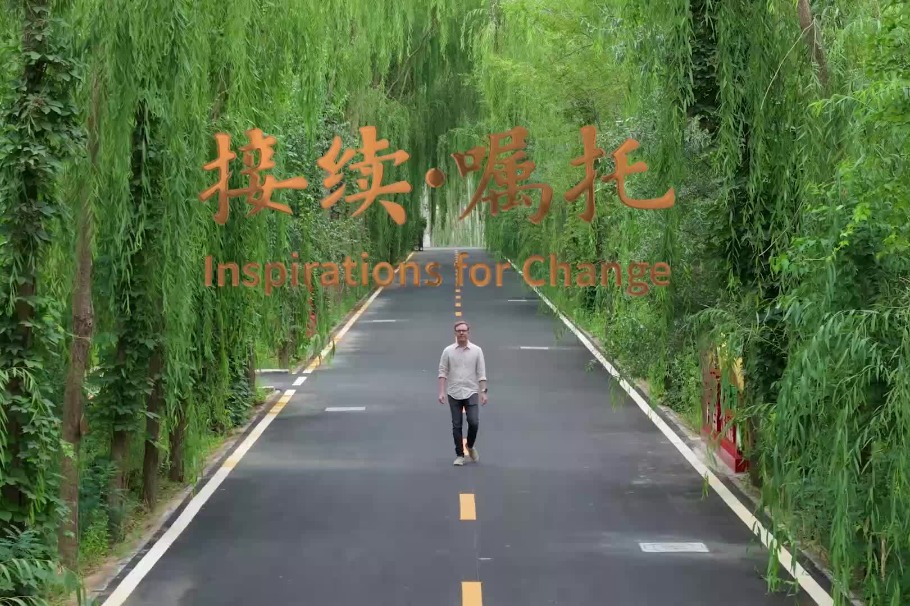Identity crisis
The European Union faces a defining choice about its future place and role in the world


A major transition is underway in the global order from a unipolar world to a multipolar security architecture, and the European Union faces strategic choices about its future place and role. The EU may seek to act as an independent player while continuing its strategic transatlantic partnership with the United States, or it may become a part of the US-led Western pole, where all critical political and economic decisions are to be discussed and agreed upon with the US. In this context, the future trajectory of the EU's relations with China will play a decisive role. As the EU bears the economic implications of the Ukraine crisis and sanctions against Russia, including the decline of the EU competitiveness due to rising energy costs, the EU needs economic cooperation with rising economic giants, such as China, to boost its economic recovery and development.
China has long expressed its readiness to work with the EU in the spirit of cooperation. Chinese Foreign Minister Wang Yi, during his visit to Spain in February 2024, stated that China was ready to work with the EU to uphold free trade, practice multilateralism, and promote an equal and orderly multipolar world. He emphasized that China regarded the EU as "an important force in the multi-polar pattern" and supported European integration and the development and growth of the EU.
Meanwhile, rising economic competition between major actors creates complications that need to be addressed. The recent policy actions by the US, including the Inflation Reduction Act of 2022 and the CHIPS and Science Act of 2022, provided a significant advantage to the US economy, triggering the influx of capital from Europe to the US. As the EU struggles to keep its economy afloat and continue serving as the best model of a social welfare system, the EU needs to look ahead and reassess its economic relations with its partners.
In this context, the evolution of the electric vehicle market is among the topics that need to be discussed. It is part of the green transition, the most urgent policy issue as climate change raises concerns among citizens and policymakers. When the EV revolution started, the leading players were European and US companies, which were at the cutting edge of innovative technologies. Then, many Western companies relocated their production to China. Brands such as Volkswagen, BMW and Honda successfully assembled different models in China. However, soon, the local Chinese companies entered the market. Brands such as BYD, Geely and SAIC are increasing their production lines and looking to expand their exports, including to the EU and other markets.
Some European officials have expressed concerns about a potential influx of Chinese EVs into the European market. The European Commission launched a probe in October 2023, which will last 13 months. The primary goal of the probe is to determine whether Chinese-made EVs benefit from state subsidies. According to the EU Commission, investigators should visit China, particularly BYD, Geely and SAIC brands, but they should not visit non-Chinese brands produced in China.
As the EU and China look forward to developing bilateral ties further, as was confirmed during the 24th EU-China Summit, which took place in Beijing in December 2023, economic cooperation and competition are issues requiring significant attention. All states have the right to protect their economy from unfair competition, but it is crucial not to use this as a pretext for politically motivated moves. The history of economic development teaches us that competition is the primary source of development and innovation, and no one should be afraid of competition. Suppose states start to take politically motivated actions to protect national companies from competition. In that case, it will not only undermine the basics of the modern economic structure of the world but will also harm their national companies, making them less prone to producing innovations. In the current era of dominance of digital technologies, artificial intelligence and robotics, only companies succeeding in innovation can have a sustainable future, and here, competition with others is a benefit, not a liability.
Thus, European companies and the EU should not fear competition from Chinese EV makers. In fact, the competition with rapidly growing companies will only make European car producers more robust and more prone to invest heavily in research and development, which will benefit them in the long term. Meanwhile, China should consider the EU's concerns and reassure its partners that it adheres to fair trade rules and healthy competition. The key for the EU is to avoid politicization of this issue, as it will only hamper the development of EU-China relations and harm the competitiveness of EU car producers in the long term. Given the successful experience of EU car producers in operating in the Chinese market, including through joint ventures and production lines, the EV market has the potential to boost mutually beneficial cooperation between the EU and China, which will contribute to the economic development of both countries.
The author is chairman of the Center for Political and Economic Strategic Studies in Yerevan, Armenia. The author contributed this article to China Watch, a think tank powered by China Daily. The views do not necessarily reflect those of China Daily.
Contact the editor at editor@chinawatch.cn.
































